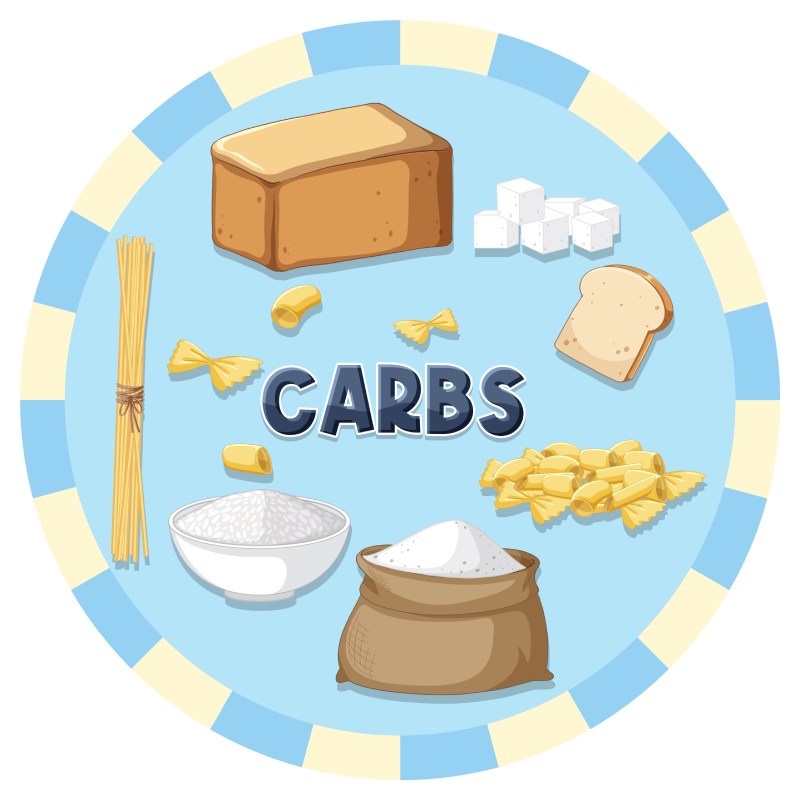Intermittent Fasting: Everything You Need to Know

“Breakfast is the most important meal of the day” or is it? What if skipping it could actually be the key to a healthier, leaner, and more focused you? That’s the idea behind intermittent fasting, a lifestyle approach that has taken the wellness world by storm. In fact, according to a 2022 Statista report, nearly 23% of U.S. adults tried intermittent fasting at some point in the past year, a figure that continues to grow.
So what is it exactly? Is it safe? And most importantly, does it work? Whether you're curious about trying it or simply want to understand the science, this comprehensive guide breaks down intermittent fasting from benefits to risks, and everything in between.
What is Intermittent Fasting?
Unlike traditional diets that tell you what to eat, intermittent fasting focuses on when you eat. It’s an eating pattern that cycles between periods of eating and fasting. Rather than counting calories or restricting food groups, you limit your eating to specific hours of the day which can lead to numerous health benefits.
Popular Intermittent Fasting Methods
There are several variations of intermittent fasting, each with different time windows:
- 16/8 method: Fast for 16 hours, eat within an 8-hour window (e.g., 12 pm to 8 pm).
- 5:2 method: Eat normally for 5 days a week, and limit calories (500-600) on 2 non-consecutive days.
- Alternate-day fasting: Eat every other day or restrict calories every alternate day.
- Eat-Stop-Eat: 24-hour fast once or twice a week.
Each method can be adjusted based on individual preferences and lifestyle.
Fat Loss Through Intermittent Fasting
One of the primary reasons people adopt intermittent fasting is for fat loss. When you fast, your body doesn’t have access to glucose from food, so it turns to stored fat for energy. This process promotes fat loss without the need for extreme dieting or excessive exercise.
Why Fasting Works for Weight Management
- Fewer meals = fewer calories consumed
- Boosts metabolism through hormone regulation
- Increases norepinephrine (a fat-burning hormone)
- Reduces insulin levels, enhancing fat breakdown
A study published in Obesity Reviews found that intermittent fasting could result in 3–8% weight loss over 3–24 weeks more than most calorie-restricted diets.
Boosting Metabolic Health with Fasting
Another significant advantage of intermittent fasting is its impact on metabolic health, which refers to how efficiently your body generates and uses energy. Poor metabolic health increases the risk of chronic diseases like type 2 diabetes, obesity, and cardiovascular disorders.
Fasting Supports Key Metabolic Functions:
- Enhances insulin sensitivity
- Reduces inflammation
- Lowers blood pressure and cholesterol
- Balances blood sugar levels
When practiced consistently, intermittent fasting may lower the risk of metabolic syndrome, a cluster of conditions that increase your risk of heart disease and diabetes.
Intermittent Fasting and Insulin Sensitivity
A powerful benefit of fasting is its positive effect on insulin sensitivity and your body’s ability to respond to insulin and regulate blood sugar. Poor insulin sensitivity leads to insulin resistance, a precursor to type 2 diabetes.
By fasting, insulin levels drop, allowing your body to rest and reset. This increases insulin sensitivity, helping your cells absorb glucose more effectively.
A 2019 study from Cell Metabolism found that early time-restricted feeding improved insulin sensitivity, even without weight loss, showing that the benefits of fasting go beyond the scale.
Cellular Repair and Longevity: The Science Behind the Fast
During fasting, your body initiates a process called autophagy, where cells remove damaged components and recycle waste. This cellular cleanup plays a crucial role in:
- Preventing age-related diseases
- Improving brain function
- Boosting immunity
Animal studies also suggest that intermittent fasting could extend lifespan and delay the onset of age-related conditions. Though human studies are still ongoing, the prospects are promising.
Who Should Be Cautious with Intermittent Fasting?
While intermittent fasting is safe for most healthy adults, it's not for everyone. You should consult a healthcare provider before starting if you:
- Have a history of eating disorders
- Are pregnant or breastfeeding
- Take medications that require regular food intake
- Have chronic conditions like diabetes or low blood pressure
Children and teens are generally advised against fasting due to their energy and nutrient needs.
What to Eat During Eating Windows
Though intermittent fasting doesn’t dictate what you eat, your food choices still matter. Filling your plate with nutrient-dense, whole foods will optimize your results.
Recommended Foods:
- Lean proteins (chicken, fish, legumes)
- Healthy fats (avocado, nuts, olive oil)
- Whole grains (quinoa, oats, brown rice)
- Fruits and vegetables
- Hydration (water, herbal teas, black coffee during fast)
Avoid processed snacks, sugary beverages, and high-sodium foods that can spike insulin and reduce the benefits of fasting.
Breaking the Fast the Right Way
How you break your fast can impact how you feel throughout the day. Start with something light and easily digestible:
- Bone broth or warm lemon water
- A protein shake
- Eggs and sautéed veggies
- A handful of nuts and fruit
Overeating or choosing heavy, processed foods immediately after fasting can cause bloating and fatigue.
Debunking Common Myths Around Intermittent Fasting
Myth 1: “You’ll lose muscle during fasting.”
Fact: Studies show that intermittent fasting, combined with strength training and adequate protein, preserves lean muscle mass.
Myth 2: “Fasting slows down your metabolism.”
Fact: Short-term fasting actually increases metabolism. Only prolonged calorie restriction (over weeks) can decrease it.
Myth 3: “Fasting means skipping meals and starving yourself.”
Fact: Fasting is about timing, not deprivation. You still consume essential nutrients — just within a specific window.
Benefits Beyond Weight Loss
The beauty of intermittent fasting lies in its broad spectrum of benefits that go far beyond shedding pounds.
Mental Clarity and Focus
Many practitioners report improved concentration and energy during fasting. With fewer insulin spikes and more stable energy, your brain functions more efficiently.
Hormonal Balance
Fasting can regulate hormones like leptin (hunger hormone) and ghrelin (satiety hormone), helping you tune in to true hunger cues.
Better Sleep Patterns
Fasting, especially when aligned with circadian rhythms, can improve sleep quality and regulate sleep-wake cycles.
Intermittent Fasting vs. Traditional Diets
Unlike traditional calorie-restricted diets, intermittent fasting is less about restriction and more about flexibility. Here’s a quick comparison:
| Aspect | Intermittent Fasting | Traditional Diets |
|---|---|---|
| Focus | Eating schedule | Calorie/nutrient intake |
| Flexibility | High | Moderate |
| Hunger levels | Lower over time | Often increase |
| Sustainability | High (for most) | Low to moderate |
This flexibility is why many people find intermittent fasting easier to stick with long term.
Getting Started: Tips for Beginners
If you're new to intermittent fasting, ease into it. Don’t attempt a 24-hour fast on day one. Here are a few helpful tips:
- Start small: Begin with 12:12 fasting (12 hours of eating, 12 hours of fasting).
- Stay hydrated: Water and zero-calorie drinks keep hunger at bay.
- Plan your meals: Prep balanced meals ahead of time.
- Listen to your body: Headaches or fatigue may be signs of adjustment or undernourishment.
Stick with it for 2–3 weeks before evaluating results. Your body needs time to adapt to the new rhythm.
Final Thoughts: Is Intermittent Fasting Right for You?
Intermittent fasting has become more than a fad; it is an improved way of life that is done fairly often and leads to fat loss, improved metabolic health, and more sensitive insulin. It is well supported by science and an increasing number of success stories in the real world.
But, as with any change in lifestyle, this is most effective when applied specifically to your requirements. Before jumping into the game, consider your goals, schedule and health. and most importantly make certain that you are feeding your body, not starving it.
Are you prepared to take a shot at intermittent fasting? Begin by starting with a little and gradually add it to it and, to make it a point, always talk to a doctor in case you are having certain pre-existing conditions. The solution to the healthier you may start with the simplest action one can start the clock.
Related posts
- PCOS Diet Chart for Weight Loss & Hormone Balance
The Indian Journal of Endocrinology and Metabolism says that Polycystic Ovary Syndrome...
- Weight Loss Diet for People with Allergies & Food Intolerances
Finding the right weight loss diet can be overwhelming for anyone, but when food...
- Do Carbs Really Make You Fat? The Truth
For decades, carbohydrates have been blamed as the enemy of weight management. From...




